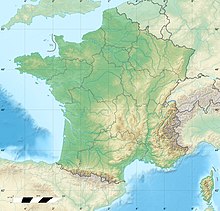| Battle of Hamel | |||||||
|---|---|---|---|---|---|---|---|
| Part of the Western Front of World War I | |||||||
 Australian and American troops dug in together during the Battle of Hamel | |||||||
| |||||||
| Belligerents | |||||||
|
|
| ||||||
| Commanders and leaders | |||||||
|
• |
• | ||||||
| Strength | |||||||
| ~7,000 | ~5,600 | ||||||
| Casualties and losses | |||||||
| 1,400 killed or wounded[1] |
2,000 killed or wounded 1,600 captured[2] | ||||||
The Battle of Hamel was a successful attack by Australian Army and US Army infantry, supported by British tanks, against German positions in and around the town of Le Hamel, in northern France, during World War I. The attack was planned and commanded by Lieutenant General John Monash, commander of the Australian Corps, and took place on 4 July 1918.
Many of the tactics employed, such as the use of combined arms, illustrated the evolution of military tactics, from the massed attacks mounted earlier in the war. All of the Allies' objectives were achieved within 93 minutes, just three minutes longer than Monash's calculated battle time.
To give the newly arrived American Expeditionary Force (AEF) combat experience, the five Australian infantry brigades involved were augmented by 10 companies from US Army battalions. However, six of these US infantry companies were withdrawn from the front line before seeing action. Hamel was the first time during World War I that elements of the AEF were commanded operationally by non-American officers.
- ^ Richardson 2011, p. 37.
- ^ Bean 1942, pp. 326–327.
